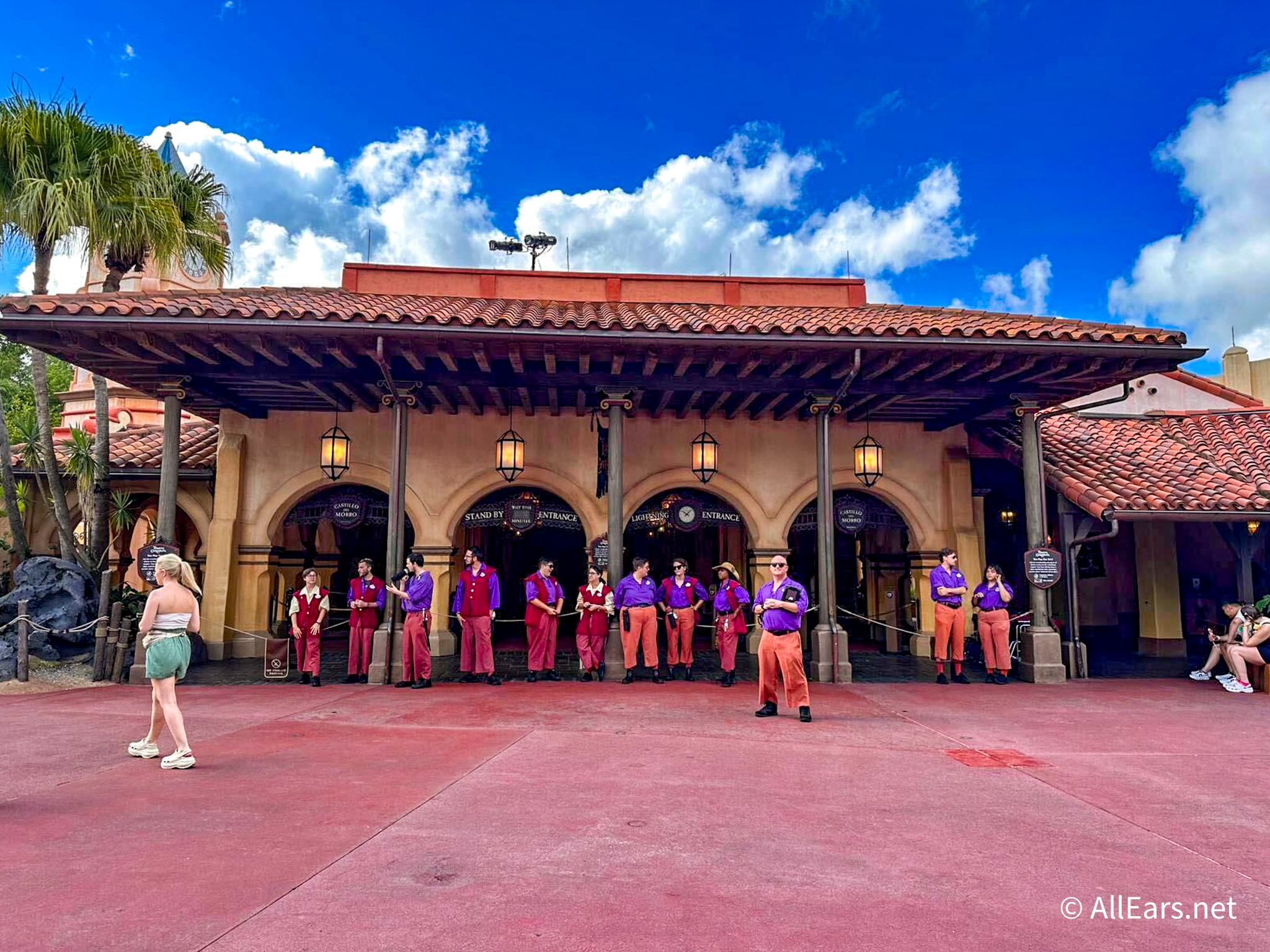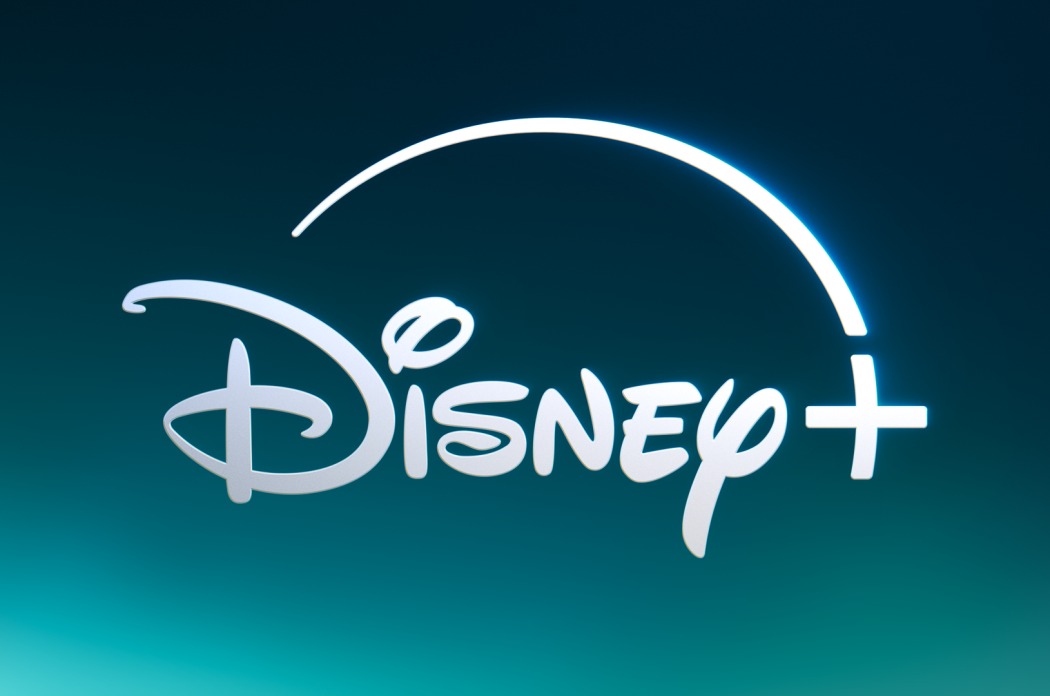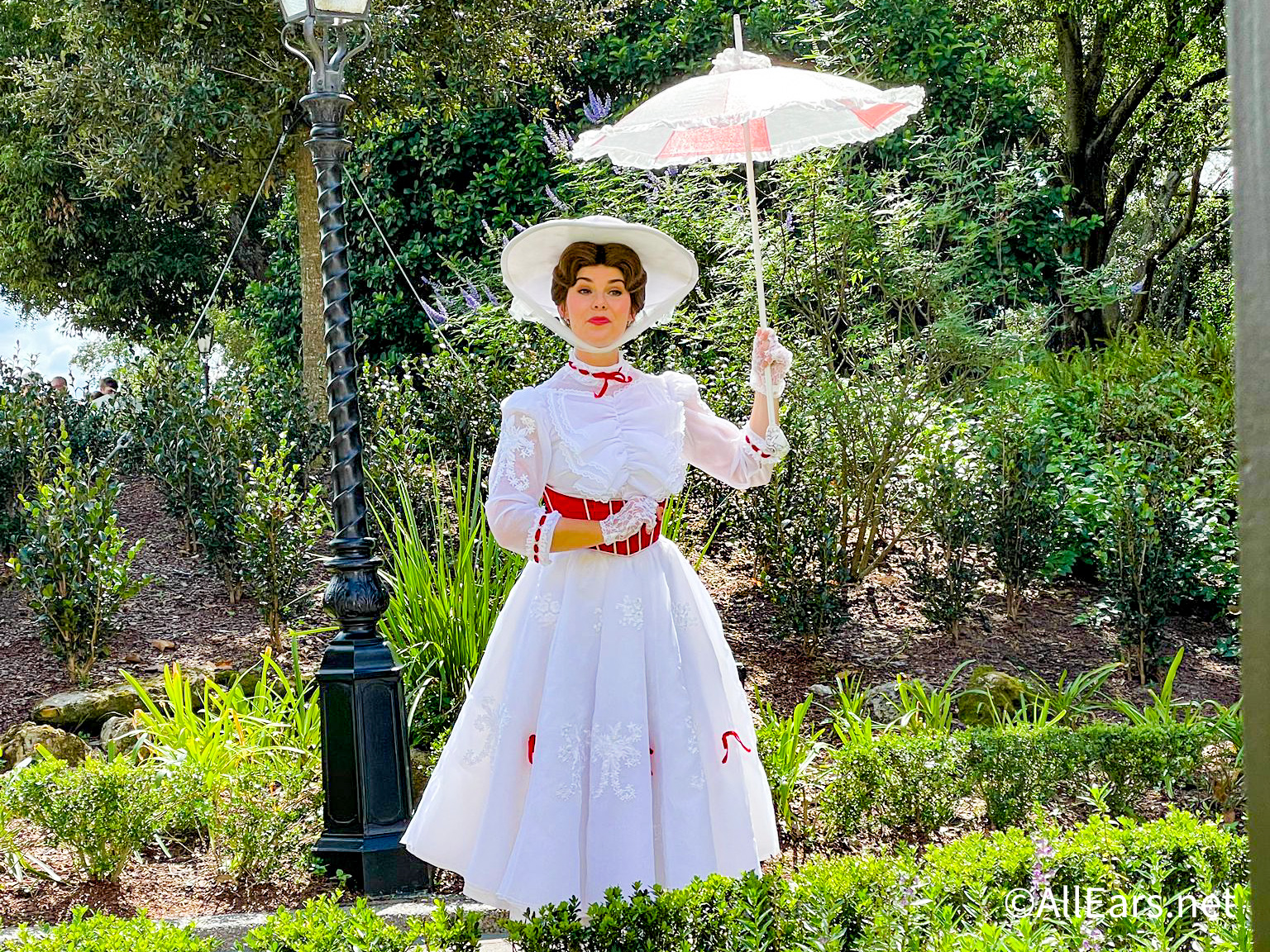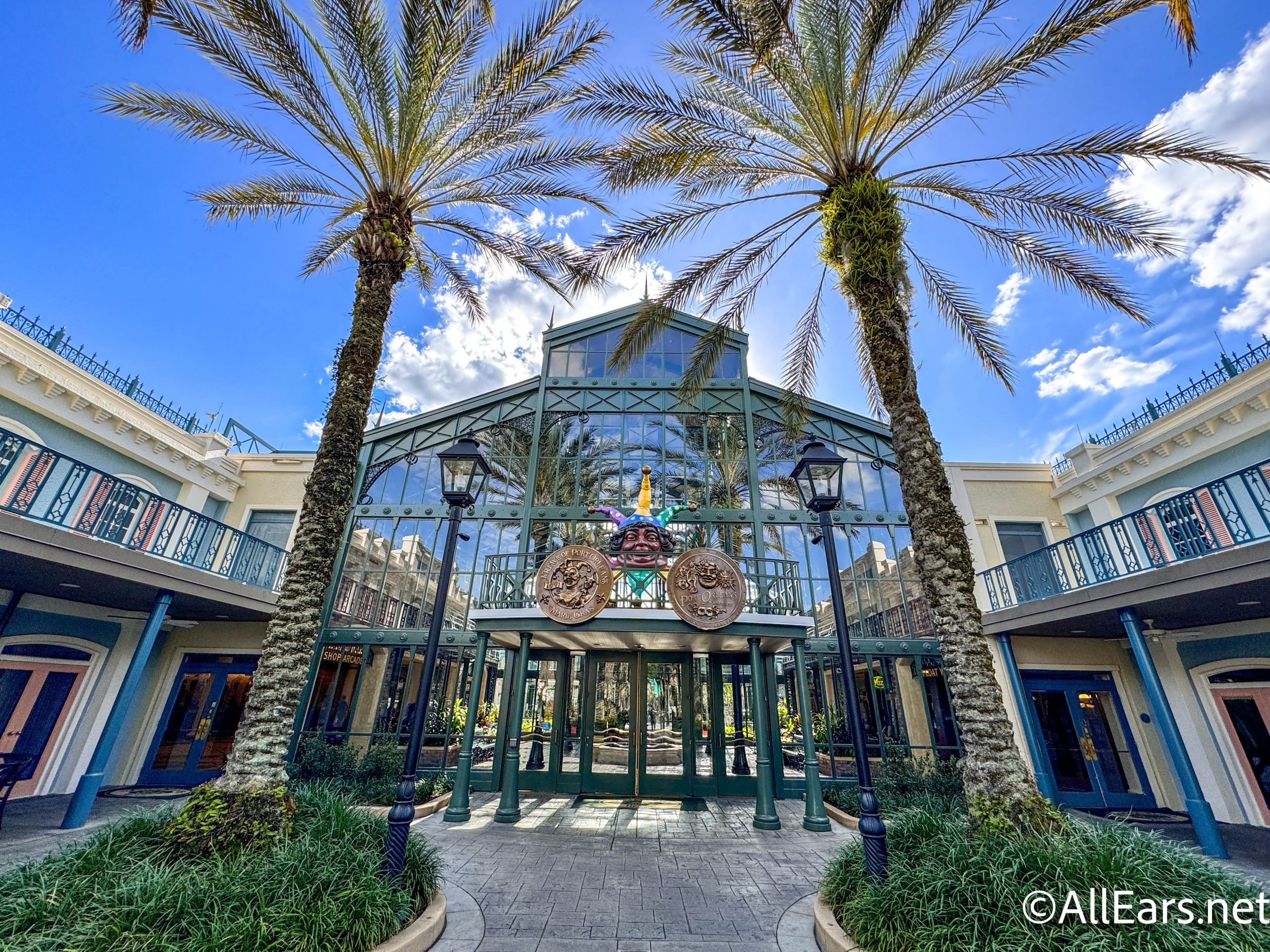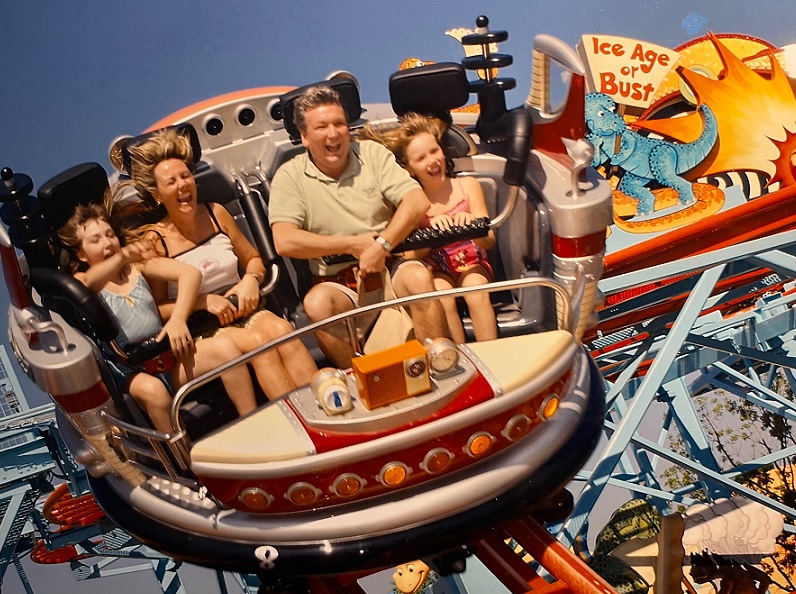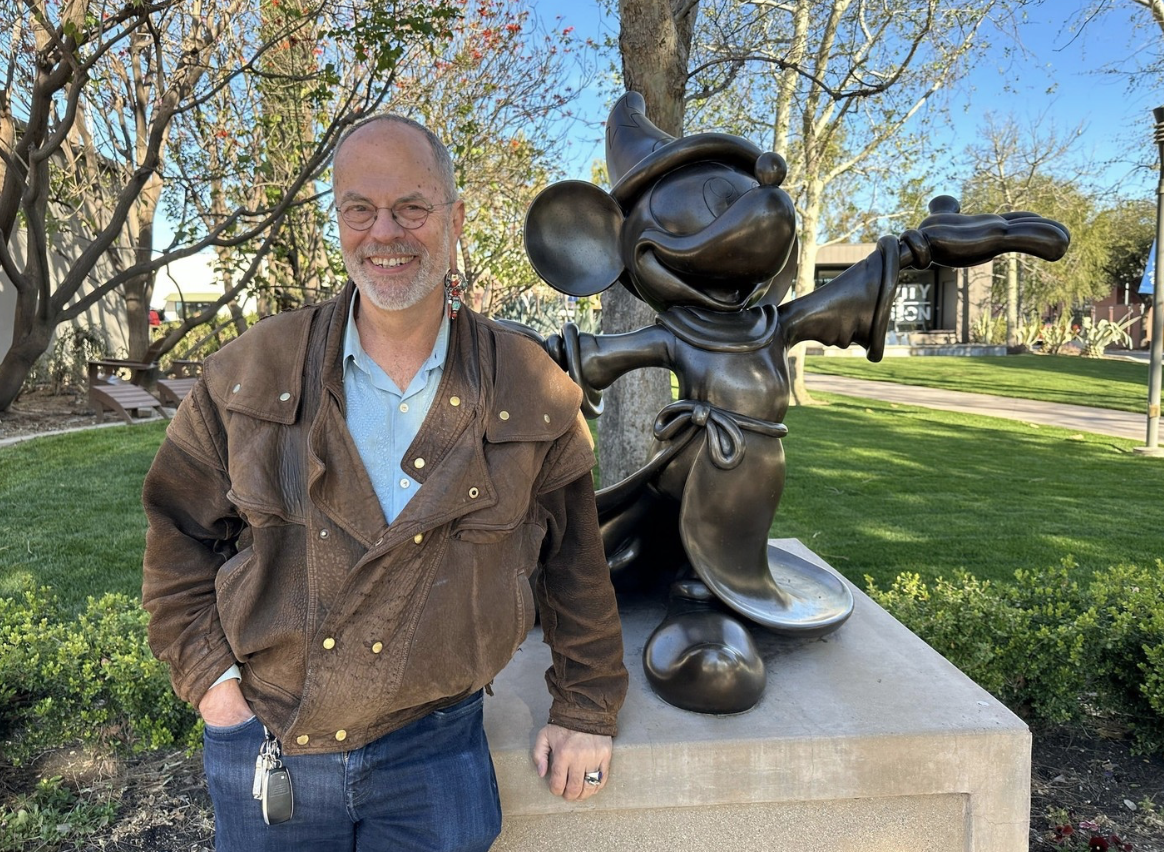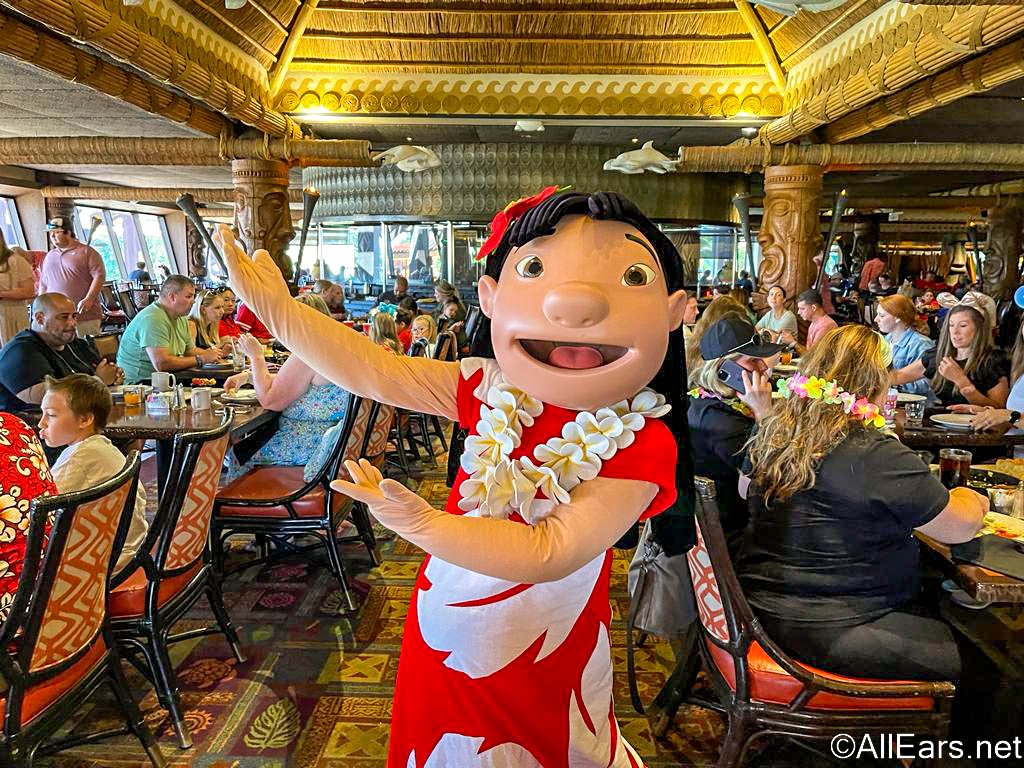Everyone Is Important: A Conversation with Lee Cockerell
by Mike Scopa
AllEars® Feature Writer
Feature Article
This article appeared in the October 7, 2008 Issue #472 of ALL EARS®
(ISSN: 1533-0753)
Everyone Is Important. Those are three simple, yet very important words. They are the first and last words that come to Lee Cockerell's mind when you ask him about his thoughts on leadership.
He should know.
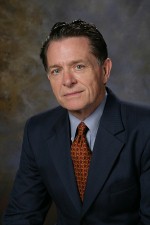 Lee Cockerell spent 10 years as Executive Vice President of Operations for the Walt Disney World Resort and in his upcoming book, Creating Magic: 10 Common Sense Leadership Strategies from a Life at Disney (2008, Doubleday Books, ISBN: 978-0-385-52386-8), Cockerell shares all that he has learned in his career and reminds us that "…leadership is not a role: it's a responsibility."
Lee Cockerell spent 10 years as Executive Vice President of Operations for the Walt Disney World Resort and in his upcoming book, Creating Magic: 10 Common Sense Leadership Strategies from a Life at Disney (2008, Doubleday Books, ISBN: 978-0-385-52386-8), Cockerell shares all that he has learned in his career and reminds us that "…leadership is not a role: it's a responsibility."
Recently, I had an opportunity to sit down with this man to discuss his life, his career, and this fascinating book. This book is not the typical book you would find on your local bookstore's display. The topic itself has a uniqueness about it, so my first question to Lee was what prompted him to write a book on leadership.
He quipped, "I always wanted to write a book, but never thought I had anything to say." However it was the success of the Disney Great Leader Strategies, which Cockerell developed in 1995 for Disney World, that sparked the idea that those principles would serve well as a foundation for a book on what it takes to be a great leader. Those strategies needed to be shared.
Lee knew he had a lot to say because over the years he has learned a very important lesson. "When you pay attention, there are great ideas everywhere."
Pay attention to this book; it too has great ideas… everywhere between its covers. I've read it twice already because on my first pass I kept coming across some points that made me pause and think, "Hmmm, I need to keep this in mind the next time I… " so I constantly go back to reinforce those ideas and principles found in this book. I'm already benefiting from them.
Trust me — you will, too. These are all "common sense strategies," not just in terms of leadership, but for life as well.
For the Disney fanatic, especially anyone who loves Walt Disney World, this book offers an inside peek at how WDW operations have evolved over the years and how great leadership leads to both Cast Member and Guest satisfaction, and how those two important pieces work toward overall business success.
I could spend my entire time here talking about all the great examples Cockerell brings to his book in explaining his ideas, but that would spoil the adventure for you.
However, I love to tease, so here's a taste of what you will find between the covers of this book:
In his "Breaking the Mold" chapter, Cockerell makes a point of being clear about who is responsible for what and he talks about how in Disney's food and beverage division the lines of authority were unclear, leading to inconsistencies. At one point a Coca-Cola at a park concession stand may have cost $1.39 while the same size drink at a resort snack bar might have cost $2.99. This was a result of chefs purchasing from different vendors. Imagine that at one point WDW was buying 25 kinds of french fries and 130 different pastas from several vendors, resulting in higher prices. Lee Cockerell fixed that by establishing a centralized group with the final authority on food orders, saving money while maintaining a high level of quality for the guests. He broke the mold by making a change… and it paid off.
In his "Eliminate Hassles" chapter, he talks about how important it is for great leaders to listen to their employees and their customers. Guest surveys disclosed that the biggest complaint was waiting in line for attractions. The result was the implementation of FastPass at the parks, which allows guests to acquire a pass to enter an attraction during a certain window of time, saving valuable vacation time.
In that same chapter he mentions how Cast Members often noted the inconvenience and hassle of having to come early and go to the costume department every day to get their costumes prior to starting their shifts. Their voices were heard and now Cast Members can check-out costumes, as many as five, and be responsible for keeping those costumes clean. That saved the Cast Members time and saved the resort expensive cleaning costs. Leaders listen.
Great leaders get out and about and do not spend all day in their office. Lee recalls the story of Walt Disney walking through Disneyland one day and noticing a cowboy from Frontierland strolling through Tomorrowland. Feeling that such a sight would impact the "sense of magic," Walt consulted with his staff. The answer? Utilidors — arteries below the park that allow Cast Members to get to their respected land out of the sight of guests. If Walt had not ventured out as often as he did he would have never noticed areas that needed attention.
These are just a few of the examples Cockerell provides in bringing to life many of the points he makes in describing his strategies in the book. I mentioned to Lee the quote from Walt Disney saying that he believes that, "everyone should have a great failure while young in life." So I asked Lee what his great failure was.
"My biggest failure," he says, "is that I did not understand leadership and I was a 'take no prisoners' manager… and that was not healthy."
There are two specific recollections by Lee Cockerell in this book that speak to this statement. He obviously saw both incidents as huge lessons that would have an impact on his career. Oh no, I cannot do them justice by describing them here… they are best described by the author in his own words. When you read the book you'll see what I mean.
He went on to say that there are many dangers in the corporate world, and that he has seen many "bad behaviors." He said he always knew better, but in the corporate world "results sort of take over style." There was a pause and then he remarked, "Leadership is about character… trust."
The point of trust has always hit home with Cockerell. It was never as evident as when I asked him if he could offer two examples of a system or procedure he brought to WDW that is still in operation today. That brings a smile to his face. There was no hesitation. Remember, this is all about trust. He mentioned his pride in "creating a culture where everyone had access" to him, and in a confidential manner.
This is best described in his "Learn the Truth" chapter, in which he tells of how he worked toward making Cast Members feel safe about bringing sensitive issues to management.
Cockerell created an anonymous e-mail address and voicemail number so anyone working at WDW could contact him without revealing their identity. Anyone using these systems had the option of identifying themselves if they preferred. Lee remarks that as a result of doing this the amount of candid information he received went up dramatically. Today that system still remains in place for all Disney leaders. Again, for Cockerell this is an example of what a leader does to create a culture where everyone feels comfortable and problems that may otherwise never reach management are brought to the surface.
In a word — trust.
Another accomplishment he is proud of, and this is very much in line with the previously mentioned topic, is The Main Street Diary, which has become a staple in his quest for strong communications throughout WDW.
The Main Street Diary is a weekly paper Cockerell started in 2000. It was sent to all Cast Members and every issue contained Lee's main message on how to be a better leader; suggestions to leaders on topics to cover in the daily pre-shift meetings; a "Do You Know?" section on company news; updates on perks and benefits for Cast Members; safety and security messages; community news; lessons on diversity; policy reminders; and important dates.
As Cockerell says with pride, The Main Street Diary works toward the goal of communication, to help others meet people, recognize people, and to educate them as well.
In the book Cockerell constantly reminds us of the importance of training for WDW Cast Members and how prepared they are for just about anything. I saw this firsthand in 2004 when Hurricane Charley and Frances came roaring into Orlando. WDW seemed to just blink when Charley paid a visit. WDW opened for business the next day and I asked Cockerell how they were able to do that.
It was very simple. They practice, they conduct training simulations, they prepare for all situations.
He mentioned how an outside consultant was hired to come in and prepare them for such emergencies, and from time to time would call for a random drill saying something like, "You have a hurricane coming in. What you do?" So after hours upon hours of simulations and practicing for all situations, the resort and its Cast Members were ready for just about everything. Practice makes perfect.
During this interview I could not help feeling the positive and common sense vibes that leaped from this man's voice. Combine that with a strong sense of humility and you have an individual who comes across as someone you feel you've known all your life; a colleague you can learn from; but most of all a person for whom you find you have respect and trust… who will lead from example.
Although there are countless points made in this book, I was curious as to which ones always serve as the foundation for Cockerell's philosophy. I said to him, "Lee, I think virtually all the points you make in your book can work in our everyday lives and are not just limited to the business world. Are there any points that you especially want those who read your book to always keep up front?"
I should have anticipated his answer. Those three important words crossed his lips: "Everyone is important."
He also quoted the title from one of the chapters in the book. It's called "Burn the Free Fuel," and when I went back to look at this chapter again I noticed just how many pages I had earmarked. Obviously it had hit home to me.
Cockerell uses three letters to explain what "Burn the Free Fuel" means: ARE. They stand for Appreciation, Recognition, and Encouragement. As stated in the book, all three go very far in supplying a "cost-free, sustainable fuel" that "builds self-confidence and self-esteem," They also "boost individual and team performance and keep an organization running cleanly and smoothly." Best of all, "its supply is inexhaustible."
Think about it. If you show appreciation to all whom you encounter, recognize their efforts, and constantly give them encouragement, you will no doubt find them returning your efforts with boundless energy. It makes sense — common sense.
ARE is very much synonymous with Lee Cockerell. You will find many examples in the book where he has invested these three ideals, and he has seen many dividends in the form of strong organizations, loyalty, and, above all, business success.
The last piece of advice he offered me before finishing the interview was something his lovely wife Priscilla had mentioned to him a long time ago, "Always be careful what you say and do, they are watching you and judging you"
After all, great leaders lead by example. There is much wisdom in that sentence — especially for those who strive to be great leaders.
I've described some of the WDW guidebooks as "Disney Bibles," but it's been a very long time since I've come across a piece of writing that is worthy of that "Bible" moniker.
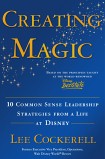 Creating Magic: 10 Common Leadership Strategies from a Life at Disney has earned a spot on my "bible" bookshelf. It's not a book you read once or twice. It's a reference tool, to be referred to over and over again… to remind us of not just what it takes to be a great leader, but what it takes to live our lives in a manner that is, well — a common sense approach.
Creating Magic: 10 Common Leadership Strategies from a Life at Disney has earned a spot on my "bible" bookshelf. It's not a book you read once or twice. It's a reference tool, to be referred to over and over again… to remind us of not just what it takes to be a great leader, but what it takes to live our lives in a manner that is, well — a common sense approach.
We all want respect; we all want trust; we all want success.
Lee Cockerell has certainly gained this from all who have been fortunate to have worked for and with him.
For me, I'd like to add one more word: admiration. When you read this book you will understand. It all started with his very simple rule. "Everyone is important."
If you would like more information about Lee Cockerell, visit his website at www.leecockerell.com.
Visit the AllEars® Amazon.com Bookstore to order your copy today! The book will be available on October 14, 2008.
Every page is important.
-=-=-=-=-=-=-=-=-=-=-=-=-=-=-=-=-=-=-=-=-=-=-=-
ABOUT THE AUTHOR:
Mike Scopa has been a huge Disney fan for as long as he can remember. He first visited Walt Disney World in 1975 and has returned many times (how many? he's lost count!) since. Mike is a contributor to the Unofficial Guide to Walt Disney World and Cara Goldsbury's Luxury Guide to Walt Disney World, and has served as keynote speaker for the 2006 and 2007 MagicMeets. He is also co-host of the WDWTODAY Podcast and writes a regular blog, The View from Scopa Towers, for AllEars.Net:
http://land.allears.net/blogs/mikescopa
Other AllEars® articles by Mike Scopa: http://allears.net/btp/mikescopa.htm


